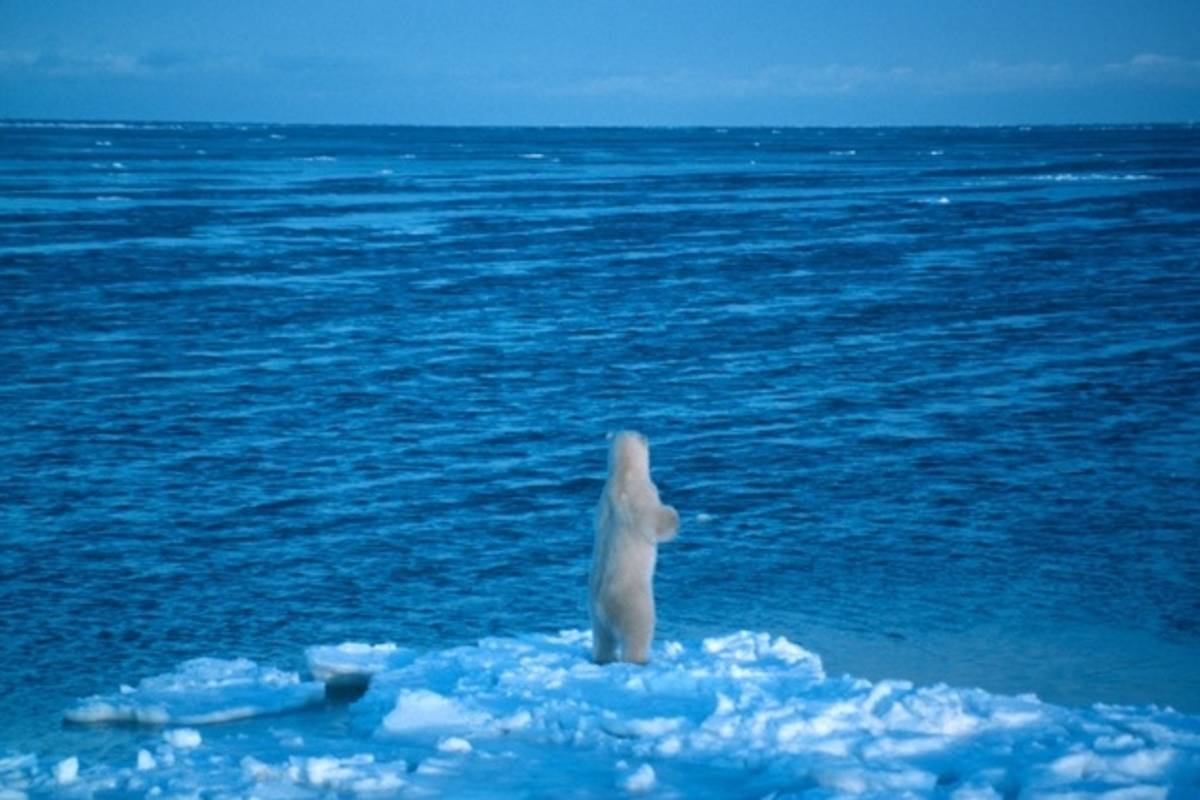(Bozeman, MT - November 29, 2017) - Most people associate polar bears and melting sea ice with the words “global warming” and “climate change.” Because of this polar bears have become a favorite target of climate-change deniers, who falsely claim Arctic sea ice loss isn’t happening or does not pose a threat to polar bears.
In a new paper published today in BioScience, a diverse team of scientists examines the misinformation about polar bears circulated in Internet blogs. Led by Jeff Harvey of the Netherlands Institute for Ecology and the Free University of Amsterdam, the paper includes perspectives from disciplines including climate change, polar bears, basic ecology, and the methods behind deliberate miscommunication. It examines why climate change-deniers choose to focus on polar bears, how they succeed in confusing the public, and what scientists can do to combat that confusion.
“Just as the tobacco industry spawned confusion about the link between smoking and cancer, so do climate-change-denying bloggers try to confuse the public about the science of global warming,” said Dr. Steven C. Amstrup, chief scientist at Polar Bears International, who co-authored the paper. “By denying the impacts of human-caused climate change on polar bears, these bloggers hope to use polar bears to cast doubt on global warming itself. Unfortunately, social media makes it easy to amplify misinformation; and many readers believe and trust false claims without questioning or verification.”
In science, facts are pieces of information consistently supported by physical principles and available evidence. In the case of polar bears, the facts are clear; they need sea ice to catch their seal prey, and human-caused global warming is melting the ice. By suggesting doubt about the science behind those truths, bloggers reinforce a “consensus gap” or chasm between public understanding and scientific evidence.
This study evaluated 90 blogs featuring polar bears and sea ice, using framing analysis to examine how the authors present material to readers. The analysis showed that the blogs fell into two camps, science-based or science-denying, with virtually none in the middle. The science-based blogs provided evidence and context, while denier blogs often removed context, misinterpreted examples, or resorted to attacks on the scientists.
The authors found that approximately 80% of the denier blogs attempting to cast doubt on threats to polar bears relied for their information on a blog called Polar Bear Science, by Susan Crockford. Significantly, as of this writing, Crockford has neither conducted any original research on polar bears nor published any articles focused on them in the peer-reviewed literature. Despite her lack of credentials, the Global Warming Policy Foundation, a climate-change denying “think tank,” describes her as “an expert on polar bear evolution” and publishes many of her notes and “briefings” as if they represent science.
In spite of the name Polar Bear Science, Crockford’s blog omits and misrepresents scientific findings about polar bears and sea ice—promoting uncertainty with partial research outcomes, cherry-picked data, and obvious falsehoods. She also attempts to sow distrust of science, with false accusations against scientists.
Although most citizens around the world support action on climate change and accept the scientific evidence, an echo-chamber of denial continues in the blogosphere and in the real world. To combat this, the authors conclude that scientists must more effectively engage with the general public—providing information in lay terms, through the blogosphere and media channels. They also advise readers on ways to evaluate what they hear or read.
Mark Twain’s famous statement, “A lie can travel halfway around the world while the truth is putting on its shoes,” is more apt than ever in our current electronic age. With so much at stake, from human-caused climate change—for polar bears and for all of us—it’s important to recognize that facts matter, evidence matters, and the peer-review process matters. This new paper clarifies those truths.

















